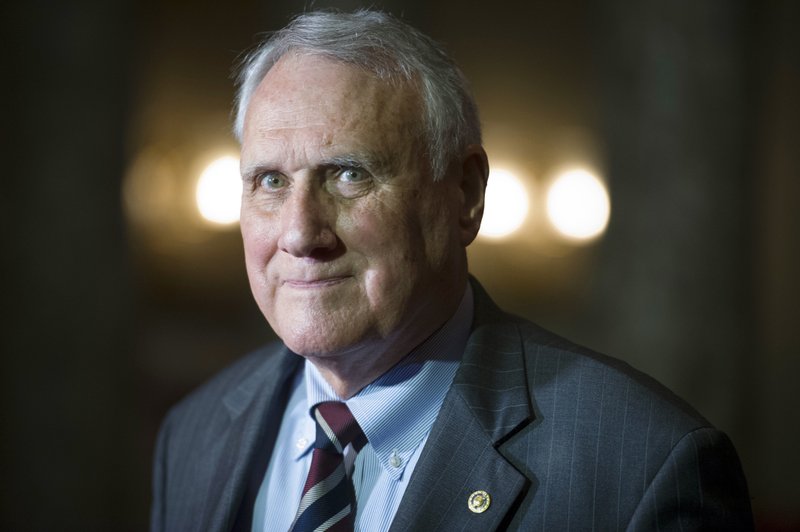WASHINGTON -- Arizona's new senator says he'd vote to repeal the Patient Protection and Affordable Care Act. That's one additional Republican ready to get rid of the statute because his predecessor, the late Sen. John McCain, helped derail the party's drive with his thumbs-down vote last year.
It could well be too little, too late.
After years of trying to demolish the President Barack Obama-era law, GOP leaders still lack the votes to succeed. Along with the law's growing popularity and easing premium increases, that's left top Republicans showing no appetite to quickly refight the repeal battle.
"I'm not going to be asking for another vote on that this year," No. 2 Senate GOP leader John Cornyn of Texas said last week when asked if he favored reopening the issue in a postelection lame duck session. No. 3 House leader Steve Scalise, R-La., said, "We need to win this election and then get more seats next year." Each is their party's chief vote counter.
That means any serious push to annul the statute would almost certainly hinge on Republicans retaining House control and adding Senate seats in November's elections, neither of which is assured. If either goal eludes them on Election Day, President Donald Trump's ability to deliver on one of his top campaign promises would have to wait for a second term, if he gets one.
Republicans seemed to gain ground last week when Sen. Jon Kyl replaced McCain, who died in August from brain cancer. Kyl said in a brief interview that he would have backed the measure that McCain opposed, a pivotal vote that would have sustained the repeal drive.
"It seems to me that would have been a useful thing to do," Kyl said.
That bill failed 51-49. A "yes" from McCain would have meant a 50-50 tie that Vice President Mike Pence could have broken by casting his own vote.
Yet the two other GOP senators who also voted no, Maine's Susan Collins and Lisa Murkowski of Alaska, haven't relented. With Republicans controlling the Senate 51-49, the GOP remains short of the 50 votes they'd need.
"I would still oppose outright repeal," Collins said in a short interview last week. In a written statement, aides said Murkowski "is not interested in another rushed, partisan process in the absence of a quality, comprehensive replacement" for the law.
Republicans have one less seat this year because Alabama Democrat Doug Jones defeated Republican Roy Moore in a December special election. Moore had defeated incumbent GOP Sen. Luther Strange in a party primary.
Senate Majority Leader Mitch McConnell, R-Ky., has ruled out revisiting the health care fight before November's midterm elections, citing the crush of spending and other bills facing Congress. He has displayed little desire to revisit the issue, which many Democrats are using in their election campaigns because Obama's law is widely accepted, especially provisions like requiring insurers to cover people with pre-existing medical conditions.
Returning to the health care fight is a decision "I don't have to reach anytime soon and don't have time to facilitate, even if I was so inclined," McConnell told reporters last week. He has said he doesn't want to resume the fight unless he can win, and his House counterpart is also showing his focus is elsewhere.
"I haven't even thought about it," said House Speaker Paul Ryan, R-Wis.
A Section on 09/12/2018
